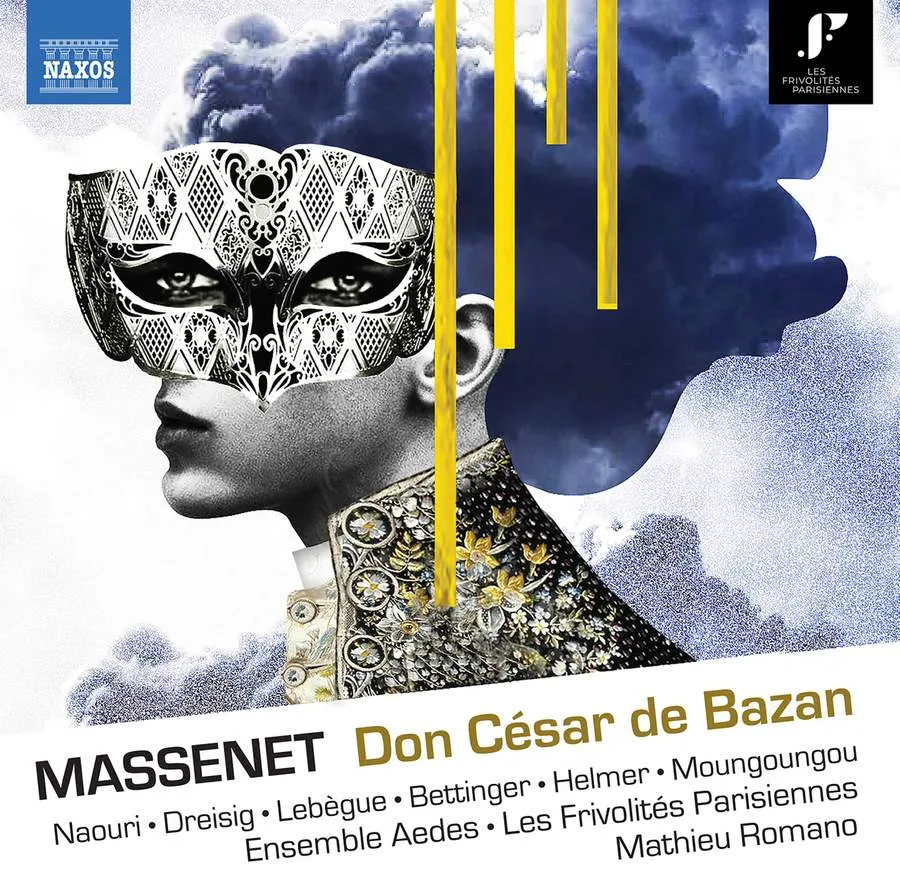
Massenet Don César de Bazan Laurent Naouri, Elsa Dreisig, Marion Lebègue, Thonas Bettinger, Christian Helmer, Christian Moungoungou (voices); Ensemble Aedes, Orchestre des Frivolités Parisiennes/Mathieu Romano Naxos 8.660464-65 112:05 mins (2 discs)
Among the casualties of a disastrous fire at the Opéra-Comique in Paris in 1887 were the full score and parts of Massenet’s second opera, originally produced at that theatre in 1872. From the surviving published vocal score the composer created a new orchestration, revising the piece for its relaunch in Geneva in 1888; in both forms it enjoyed a mild success.
In 2016 it was revived by a company called Les Frivolités Parisiennes, which specialises in the lighter French repertoire; they have prepared their own edition. On this recording the substantial dialogue is cut, alongside passages of melodrama – speech over music. Naxos publishes a French libretto only online.
Originating in an 1844 French play set in 17th-century Madrid, the plot was also used by the Anglo-Irish Vincent Wallace for Maritana (1845) – a favourite of the Victorian era and long afterwards.
Even at this early point of his career, it’s clear that Massenet – with his exceptional melodic gift and complete technical knowhow – was born for the theatre. He produces numerous attractive numbers in the popular Spanish style – like the toe-tapping Entr’acte Sévillana, eventually turned into a catchy song recorded by Melba and others. Other highlights include the Angelus prayer ensemble, an impassioned duet for the two central characters, and another ‘Duo nocturne’ for the women.
Vocally, Elsa Dreisig’s neat, precise Maritana and Marion Lebègue’s purposeful Lazarille (who is given a very pretty lullaby) represent the best of a recommendable account based on solid choral and orchestral foundations, all overseen by a conductor whose enthusiasm proves infectious.
George Hall